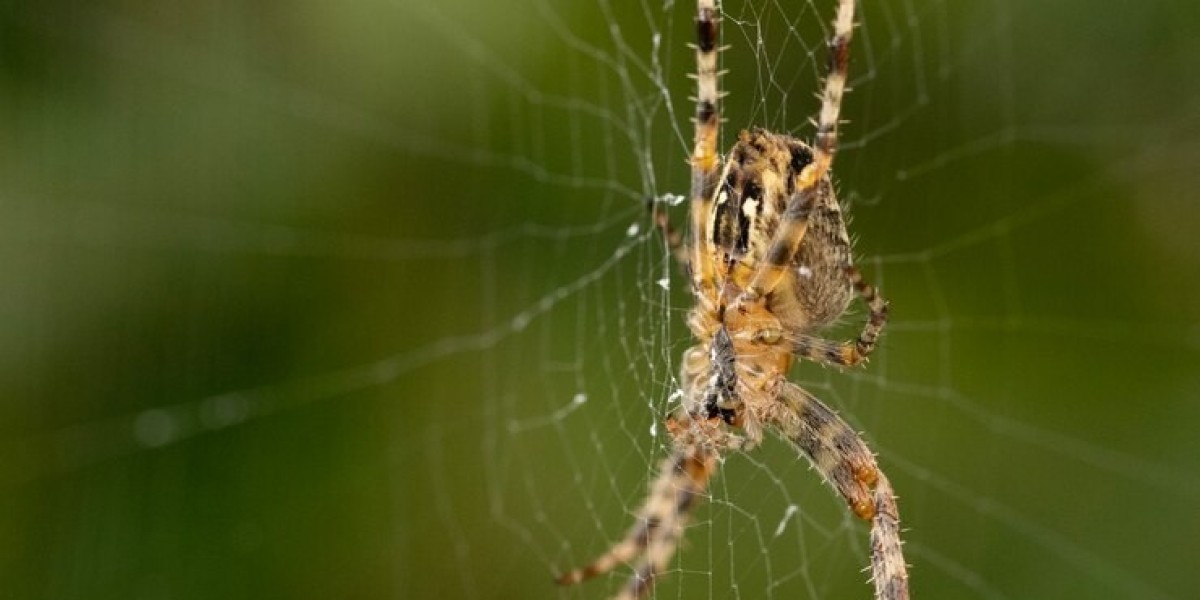Spiders are a common sight in many homes, especially in dark and secluded spaces like basements, attics, and closets. While most spiders are harmless and even helpful in controlling pests, an infestation can cause discomfort and pose potential health risks. A spider infestation may indicate larger issues in the home, such as excessive humidity or the presence of other insects that attract spiders. Fortunately, there are effective steps you can take to prevent and control spider populations, keeping your home spider-free.
What Causes a Spider Infestation?
Spiders usually enter homes in search of food or shelter. A spider infestation often begins if your home provides an ideal environment for them to thrive. They prey on insects, so if your house has an insect problem, it’s more likely that spiders will move in too. Additionally, homes with high humidity levels, cluttered areas, or poorly sealed entry points may invite spiders inside.
The most common types of spiders found indoors include the house spider, wolf spider, and cellar spider. While they may vary in size and appearance, the signs of a spider infestation are similar. You may notice cobwebs or an unusual number of spiders in different rooms. Addressing the root causes of spider infestations is crucial for long-term prevention.
Identifying the Signs of a Spider Infestation
It’s important to recognize the signs of a spider infestation early on so you can take the necessary steps to control it. Here are some common indicators:
- Increased Spider Activity: Seeing more spiders than usual in various parts of your home could be the first sign of a growing infestation.
- Spider Webs: Different species create different types of webs, but if you notice cobwebs in the corners of your ceilings, windows, or around furniture, it’s a sign that spiders are settling in.
- Egg Sacs: Spiders lay eggs in silk sacs, which can contain hundreds of eggs. Finding these sacs attached to walls, furniture, or even hidden in corners is a red flag.
- Spider Bites: Although rare, spider bites can occur when there’s a significant infestation. Some spider bites may lead to mild irritation, while others can cause infections that require medical attention.
How to Control Spider Infestations Effectively
If you’re wondering how to control spider infestations, the good news is that it’s possible to manage the problem without resorting to harsh chemicals. Natural remedies and preventive measures can go a long way in reducing spider populations.
1. Declutter Your Home
Spiders love hiding in cluttered areas where they can build their webs undisturbed. Start by clearing out unnecessary items from your home, especially in areas where spiders commonly reside, like attics, basements, and closets. By reducing their hiding spots, you’ll make your home less attractive to spiders.
2. Keep Your Home Clean
A clean home is less likely to attract spiders. Regularly vacuum and dust your living spaces, paying special attention to corners, ceilings, and behind furniture where spiders often spin their webs. This will help remove existing webs and prevent new ones from forming.
3. Seal Cracks and Gaps
Spiders can enter your home through tiny cracks in windows, doors, and walls. To prevent Spider bites infections, inspect your home for potential entry points and seal any gaps you find. Install weather stripping on doors and windows, and use caulk to close up any holes in walls or around utility lines. This can reduce the chances of a House Spider infestation.
4. Control Moisture Levels
Spiders thrive in damp environments, so it’s important to reduce moisture levels in your home. Fix any leaky pipes or faucets, and consider using a dehumidifier in areas like basements or crawl spaces to keep humidity under control. By controlling moisture, you’ll not only discourage spiders but also reduce the presence of other pests they prey on.
5. Use Natural Spider Repellents
There are several natural remedies that can help deter spiders from entering your home. Essential oils such as peppermint, eucalyptus, and tea tree oil have strong scents that spiders dislike. Mix a few drops of these oils with water and spray the solution around windows, doors, and other entry points to keep spiders at bay.
Preventing Spider Bites and Infections
While most spiders are harmless, some bites can cause discomfort or lead to infections. Spider bites typically occur when a spider feels threatened or trapped. For the purpose of avoiding spider bites infections, always be cautious when reaching into dark, cluttered areas, such as garages, storage spaces, or attics.
If you are bitten by a spider, it’s important to clean the bite area with soap and water to reduce the risk of infection. Most bites heal on their own, but if you experience symptoms like severe pain, swelling, or signs of infection, seek medical attention promptly.
Long-Term Spider Prevention Tips
Once you’ve dealt with a spider infestation, it’s important to take proactive steps to prevent future problems. Here are some additional tips to keep spiders out of your home:
- Regular Inspections: Conduct regular inspections of your home’s exterior and interior to check for potential entry points. Make sure to keep windows, doors, and vents sealed properly.
- Outdoor Lighting: Spiders are attracted to insects, which are often drawn to outdoor lights. Consider using yellow or sodium vapor lights, which are less attractive to insects and can help reduce spider activity around your home.
- Remove Outdoor Debris: Piles of leaves, wood, and other debris outside your home can attract insects and, in turn, spiders. Keep your yard clean and well-maintained to minimize the chances of a spider infestation.
Conclusion
A spider infestation can be an unsettling experience, but with the right prevention tips and strategies, you can maintain a spider-free home. Regular cleaning, decluttering, sealing entry points, and using natural repellents are all effective ways to control spider populations. Additionally, staying vigilant about signs of spider activity and taking immediate action can help prevent larger infestations from taking hold. By following these tips, you’ll create a comfortable, safe environment for your family—without the eight-legged guests.






